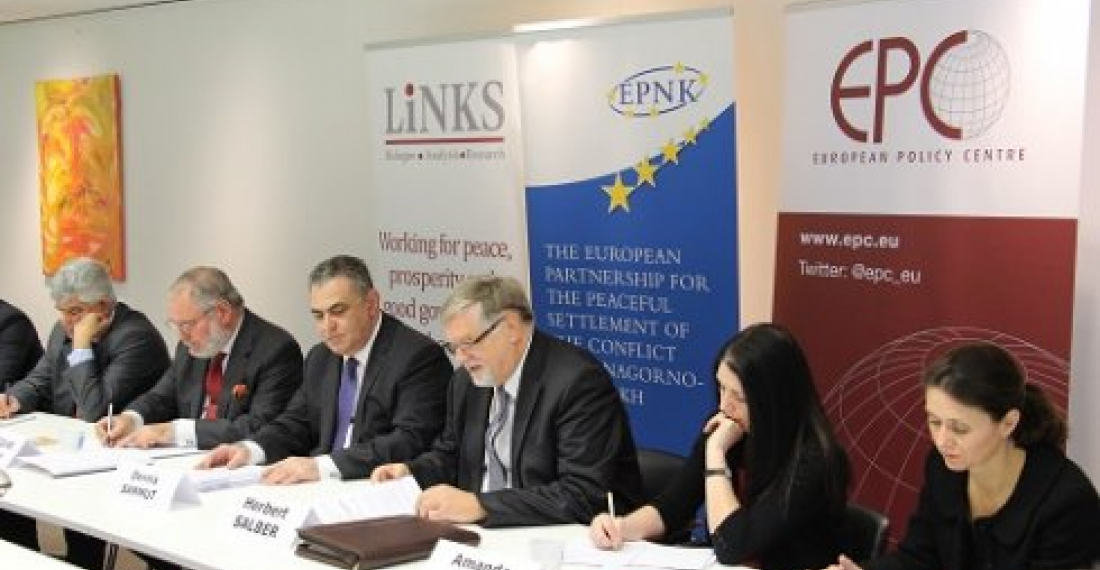Armenian, Azerbaijani and EU experts met in Brussels on 6 December in a workshop that focused on the theme of confidence-building measures and peacekeeping in the context of the Karabakh conflict and conflict resolution process. The workshop was organised by LINKS (Dialogue, Analysis and Research) and the European Policy Centre in the framework of the EU supported EPNK programme.
The workshop was opened by the EU Special Representative for the South Caucasus, Ambassador Herbert Salber, and was attended by diplomats and experts from Armenia and Azerbaijan, representaive from EU institutions, NATO and a number of EU experts. The workshop heard presentations from Ambassador Jacque Faure, Former French co-Chair of the OSCE Minsk Process; Dr Tracey German from the Department of Defence Studies, Kings College, London; Dr Dennis Sammut, Executive Director, LINKS (DAR); and Amanda Paul, Senior Analysts, EPC. Among those participating were Dr Gulshan Pashayeva, Deputy Director of the Centre for Strategic Studies under the President of Azerbaijan (SAM) and Dr Benyamin Poghosyan, Vice President for Research at the Armenian National Defence Research University under the Ministry of Defence of Armenia
The workshop discussed the paper, authored by Dennis Sammut and Amanda Paul, and published by the European Policy Centre in September with the theme: Nagorno-Karabakh: Is it time to bring peace-keeping and confidence-building back on the agenda?"
You can read the paper here.
source: commonspace.eu
photo 1: Ambassador Herbert Salber, EU Special Representative for the South caucasus making the opening remarks at the workshop organised by LINKS (DAR) and the EPC in Brussels on 6 December 2016.
photo 2: Participants at the Brussels workshop







